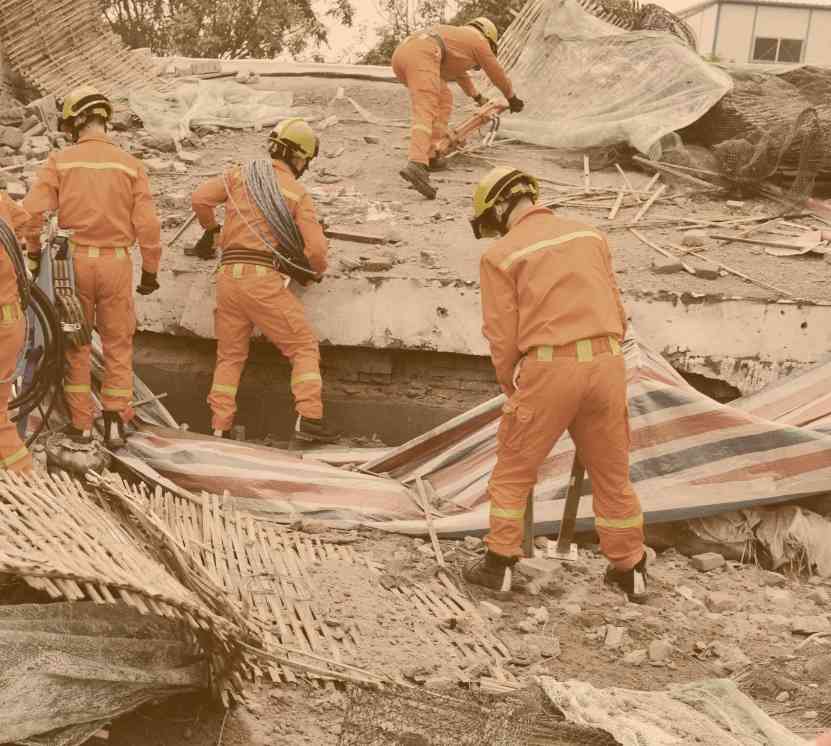ENGAGE - Engage Society for Risk Awareness and Resilience
ENGAGE brings together 15 partners from 9 countries in order to provide novel knowledge and identify impactful solutions to exploit Europe's societal resilience. Ultimately, the work of ENGAGE seeks to establish a broader, citizen-centered approach to disaster risk.
Description
The project consortium is composed of 15 partners from 9 countries and includes representatives of first responders, civil society organizations, NGOs, citizens representatives and organizations with both practical and scientific knowledge regarding societal resilience.
Through the ENGAGE project, past natural emergencies, terrorist attacks, and man-made disasters are analyzed to understand how citizens supported formal intervention practices during emergencies under specific contextual conditions.
Together with real practitioners from the Knowledge and Innovation Community of Practice (KI-CoP), the ENGAGE project proposes emergency response strategies to bring the population closer to rescuers and authorities, bridging the gap between formal and informal guidelines in specific contexts.
The ENGAGE consortium validates solutions with real users ensuring that they can be transferable to different contexts and can produce actionable knowledge and validated risk management guidelines.
Did the Sendai Framework change or contribute to changes in your activities/organization? If so, how?
The solutions proposed by ENGAGE contributes to the Sendai Framework for Disaster and Risk Reduction, managing to establish a broader, people-centric approach to disaster risk.
The policy recommendations we've crafted were also shaped by the priorities outlined in the Sendai Framework. These recommendations propose and advocate for the creation of new ecosystems where spontaneous volunteers can actively participate across all stages of disaster management. Moreover, they advocate for enhancing the environment in which crisis communications takes place in order to better consider citizens' needs.
What led you to make this commitment/initiative?
What was your position before making this Voluntary Commitment / prior to the Sendai Framework?
The actual global scenario is increasingly exposing the human society to higher hazards, requiring that all individuals specifically and the civil society at large, acquire the ability to rapidly respond to natural disaster and to man-made risks. Risk awareness and social resilience is necessary to ensure proper response to unexpected emergencies.
In the actual strategies, there is a gap between the formal effort of public authorities to protect citizens from harm and the voluntary support provided by citizens during emergencies.
Starting from this awareness ENGAGE addresses the whole society and tries to bridge the different ways of intervention to make communities more skilled in responding to disasters jointly and therefore more resilient.
Deliverables and Progress report
Deliverables
Deliverables are the end-products of the initiative/commitment, which can include issuance of publications or knowledge products, outcomes of workshops, training programs, videos, links, photographs, etc.
ENGAGE carried out a survey to understand the public perception of societal resilience and risk awareness. The main findings are summarised in the following infographics.
A survey of 4000 participants from 8 countries was conducted and 8 case studies were carried out to prepare a preliminary model for societal resilience.
ENGAGE develops video content that provides insights about their activities and interesting outcomes of their research on societal resilience.
ENGAGE collected best solutions to improve the interaction of emergency responders with civilian population. The catalogue of solutions can be found in the knowledge platform.
ENGAGE develops policy briefs with recommendations synthesized from ENGAGE research and results.
Policy briefs available are:
- Communicating with Citizens in a Crisis
- Public Warning
ENGAGE shares scientific articles published by the project partners, which have resulted from the research activities and their results on societal resilience.
Publications include:
- Risk Perception of Natural and Human-Made Disasters—Cross Sectional Study in Eight Countries in Europe and Beyond1
- Understanding Societal Resilience—Cross-Sectional Study in Eight Countries
- What do emergency services and authorities need from society to better handle disasters?
ENGAGE conducts workshops with the Knowledge and Innovation Commmunity of Practice (KI-CoP) on societal resilience involving different stakeholders from several countries.
The reports provide the outcomes of the fruitful discussions during the workshops.
Organizations and focal points
Implementing Organization(s)
- Trondheim Red Cross
- Ertzaintza
- ASL Roma 1
- Cittadinanzattiva APS
- The Centre for Disaster Medicine and Traumatology
- Deep Blue
- Everbridge
- European Emergency Number Association
- Norwegian University of Science and Technology
- SINTEF
- École Normale Supérieure
- Universidad de Navarra
- Tel Aviv University
- General Inspectorate for Emergency Situations
Focal points
